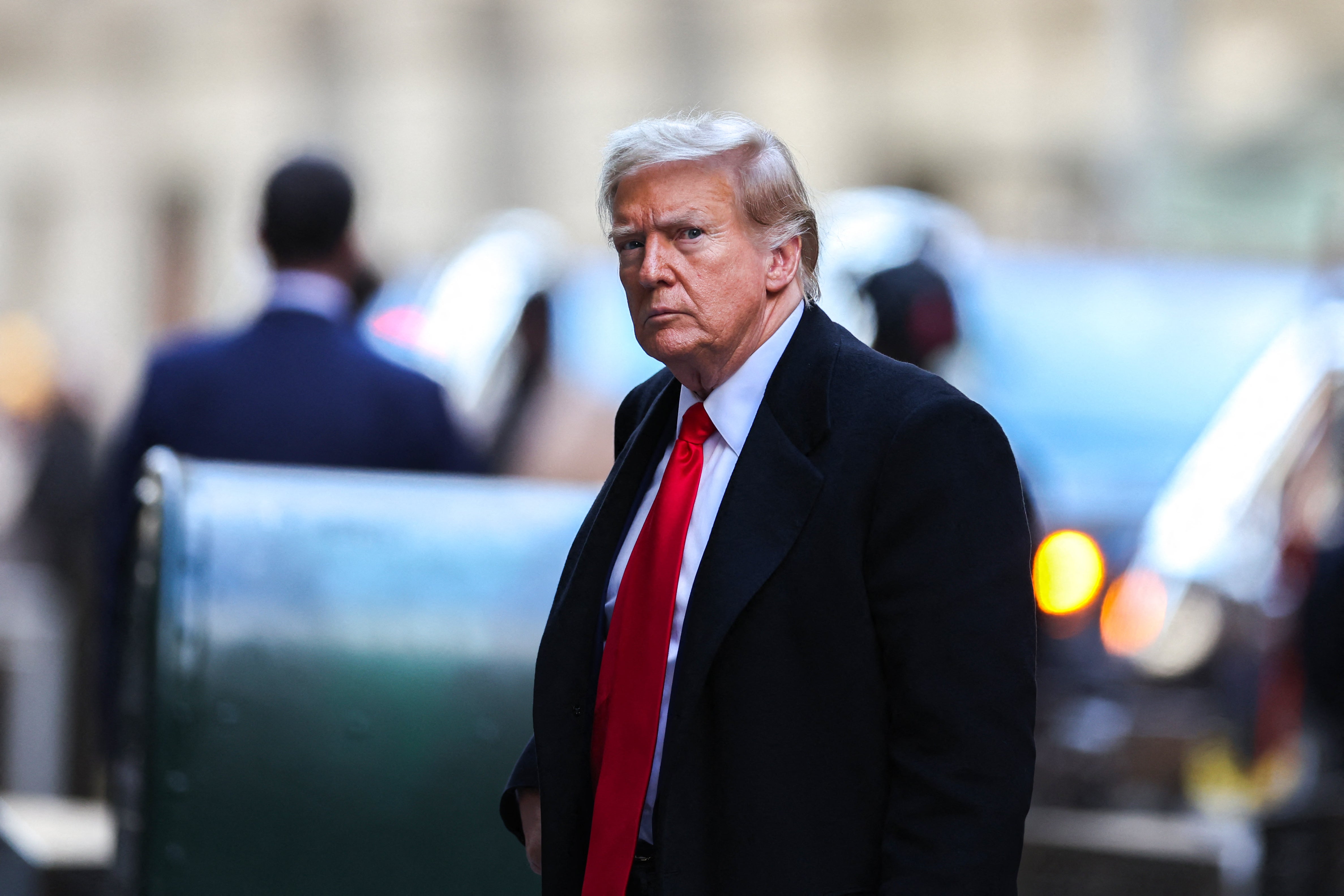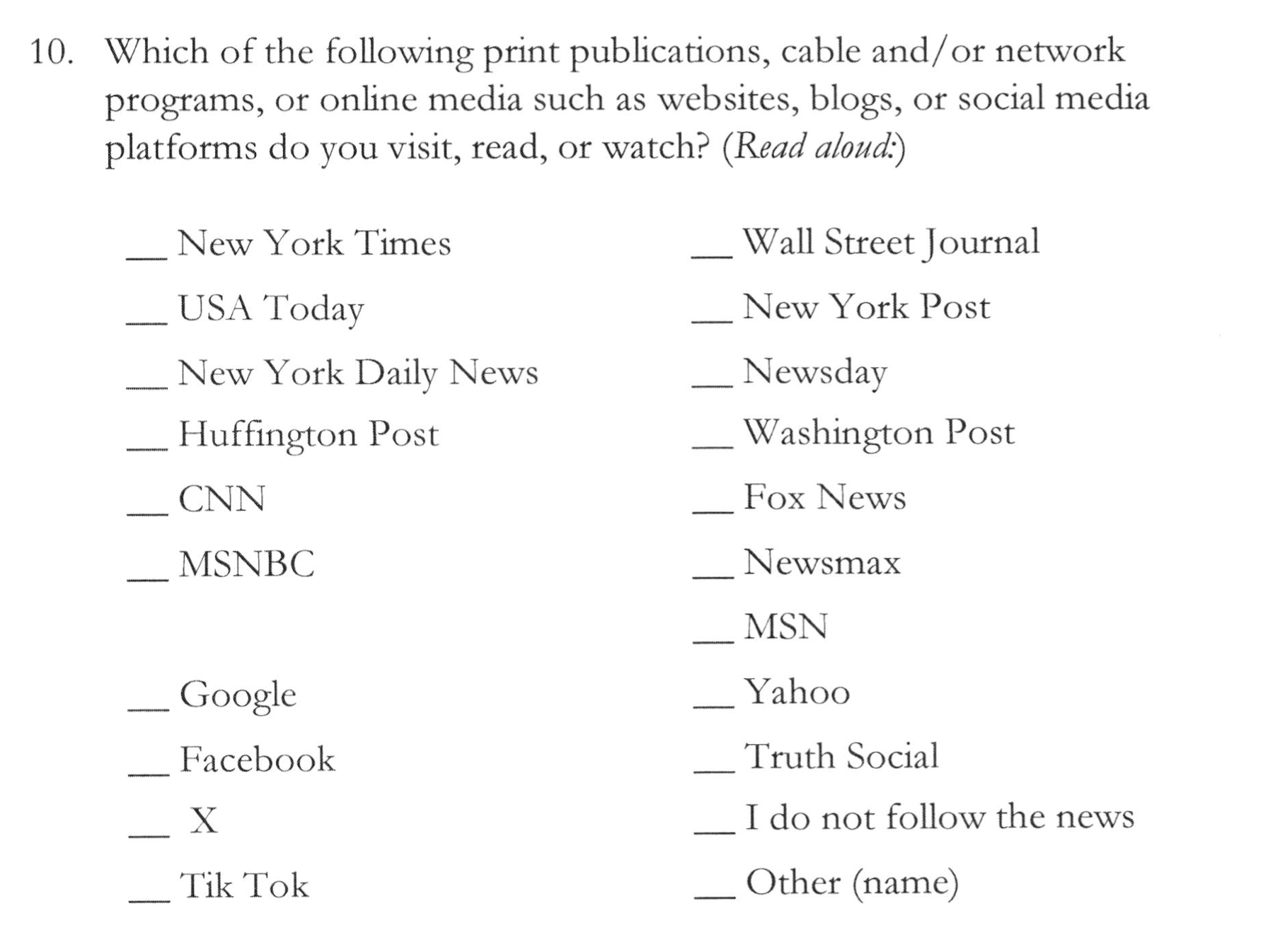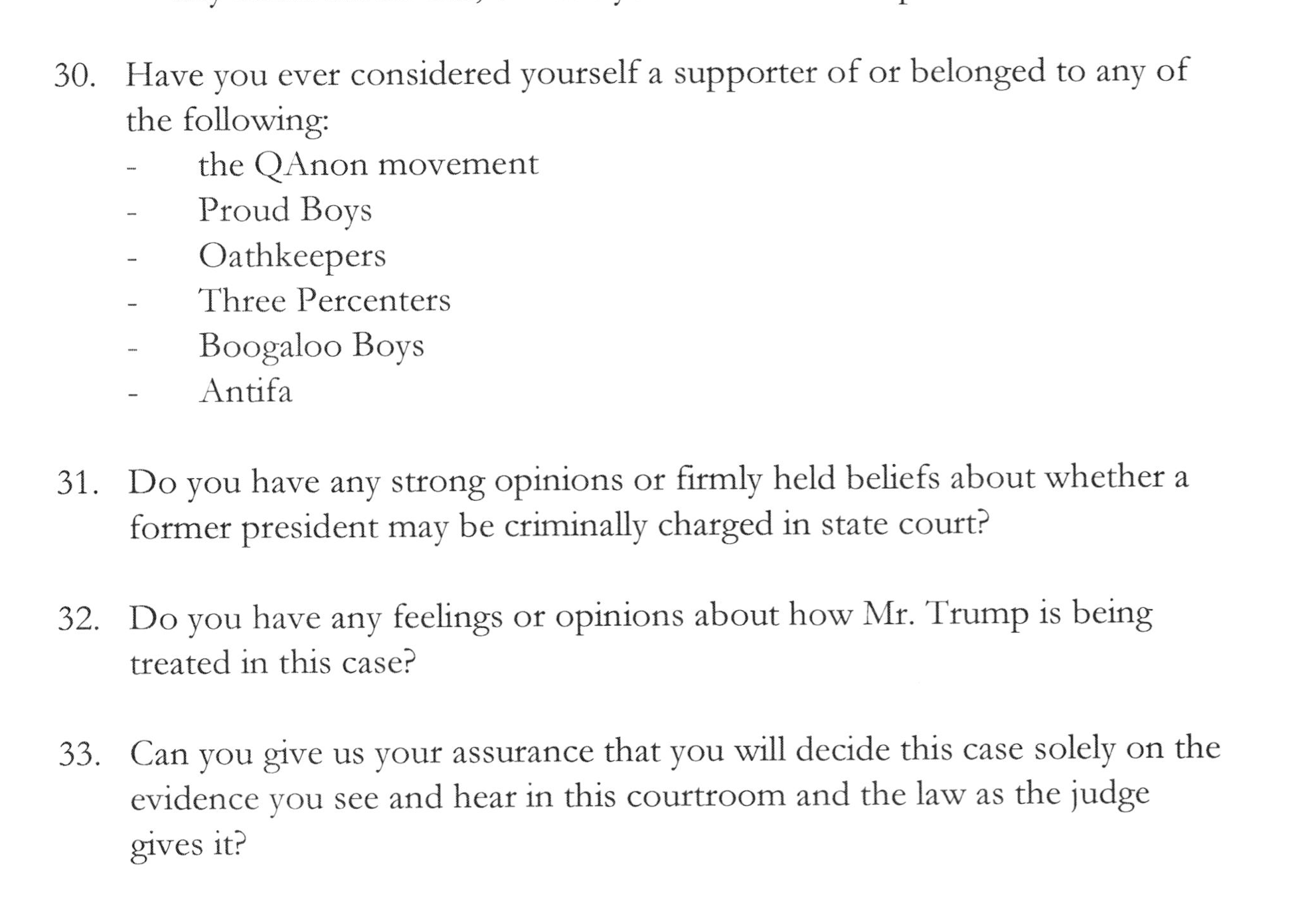Trump’s hush money jury will be asked about Proud Boys, QAnon and Michael Cohen
Jury questionairre will ask New Yorkers about their news diets and far-right movements
What do you do for a living? Are you married? Have you ever considered yourself a supporter of or belonged to the QAnon movement or the Proud Boys?
Those are among some of the 42 questions prospective jurors will be asked to answer in the first-ever criminal trial against a president when jury selection begins in Donald Trump’s hush money trial next week.
Considering proposed questions from Manhattan prosecutors and attorneys for the former president, New York Justice Juan Merchan compiled a “broad and exhaustive” list of questions on Monday that will consider jurors’ political beliefs and their news diets.
Prospective jurors, pulled from a pool of roughly 500 Manhattan residents, will also be asked about their educational background, their hobbies, if they read or watch certain news networks and newspapers, and if they have close friends or family members who worked with Mr Trump’s companies, his campaign or presidential administration.
Eighteen people – 12 who will decide the case against the former president, and six alternates – will ultimately be selected to serve on the jury, a process that is expected to begin on 15 April and could take several days to complete, with Mr Trump’s attorneys and prosecutors all having a say.
Mr Trump is charged with 34 counts of falsifying business records in connection with repayments to his then-lawyer Michael Cohen, who arranged a hush money scheme to prevent the release of potentially compromising stories about Mr Trump and his affair with adult film star Stormy Daniels.
The case from the office of Manhattan District Attorney Alvin Bragg surrounds allegations that Mr Trump used his business to falsely file payments as legal expenses, part of an alleged effort to quash stories that could interfere with his 2016 bid for the presidency.
Attorneys for Mr Trump – the presumptive Republican nominee to face President Joe Biden in the race for the White House in November – had previously argued to the judge that the case is marred with political bias. Mr Trump has repeatedly smeared the multiple criminal and civil cases against him as “election interference.”
But in a letter to attorneys and prosecutors on Monday, Judge Merchan noted that there “are no questions asking prospective jurors whom they voted for or intend to vote for, or whom they have made political contributions to.”
“Nor are jurors asked about the specific political party registration, though the answer to that question may be gleaned from the responses to the other questions,” he added. “Counsel is forewarned not to seek to expand the degree of intrusion beyond what is relevant and has already been approved.”
The purpose of jury selection “is not to determine whether a prospective juror does or does not like one of the parties,” the judge wrote.
“The ultimate issue is whether the prospective juror can assure us that they will set aside any personal feelings or biases and render a decision that is based on the evidence and the law,” Judge Merchan wrote.

One question asks whether potential jurors whether they belong to or support several fascist or conspiracy theory-fuelled movements, including QAnon, a broad grouping of interconnected far-right conspiracy theories that centre Mr Trump as a prophetic figure to eliminate a Democratically controlled “deep state.”
The question also asks whether jurors support or belong to militia-like groups the Oath Keepers, Three Percenters, the Boogaloo movement and the Proud Boys, whom Mr Trump called on to “stand back and stand by” during a 2020 presidential debate.
Several of its members, along with members of the Oath Keepers, have been convicted on sedition-related charges stemming from the January 6 attack on the US Capitol.
The questionnaire also asks jurors if they support or belong to “antifa,” the decentralised antifascist movement.

Potential jurors also will be asked if they visit, read or watch 20 news organisations and social media platforms, including The New York Times, The Washington Post and CNN as well as Mr Trump’s Truth Social and right-wing network Newsmax.
They also will be asked if they have read books or listened to podcasts from Michael Cohen – likely a star witness in the trial – and former Manhattan prosecutor Mark Pomerantz, as well those by Mr Trump himself.

Mr Trump has repeatedly tried and failed to delay the trial, or have the case be thrown out altogether.
On Monday, he sought an emergency hearing at a state appeals court to delay the start of the trial while he argues that the case should move out of Manhattan. An appeals court judge denied his request.
Mr Trump also is asking for the court to overturn a gag order that blocks him from disparaging court staff and their families.
Bookmark popover
Removed from bookmarks